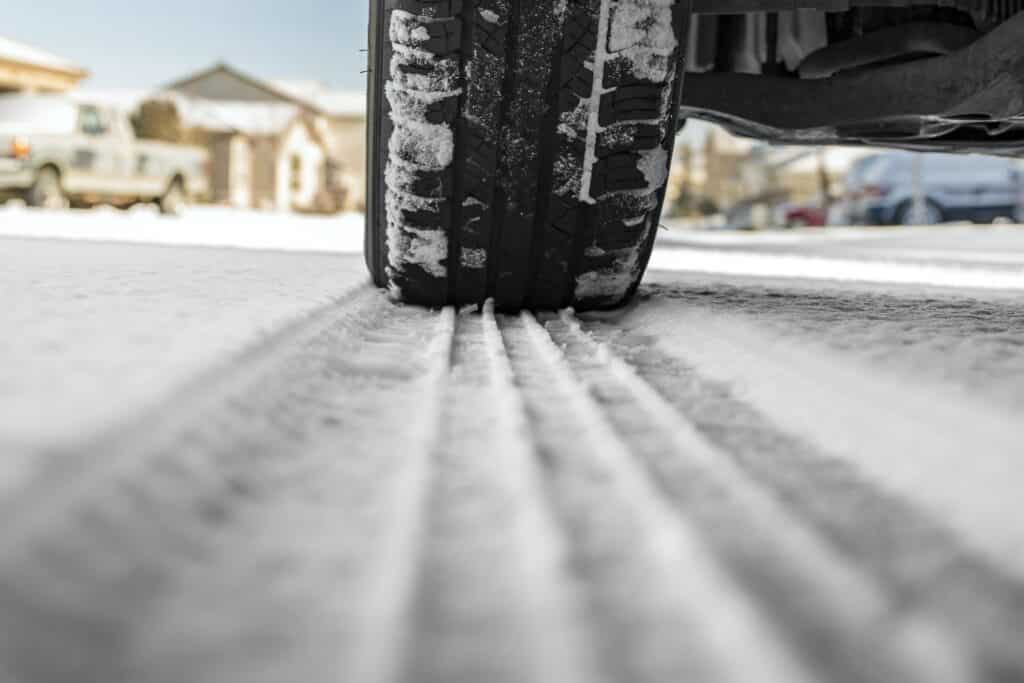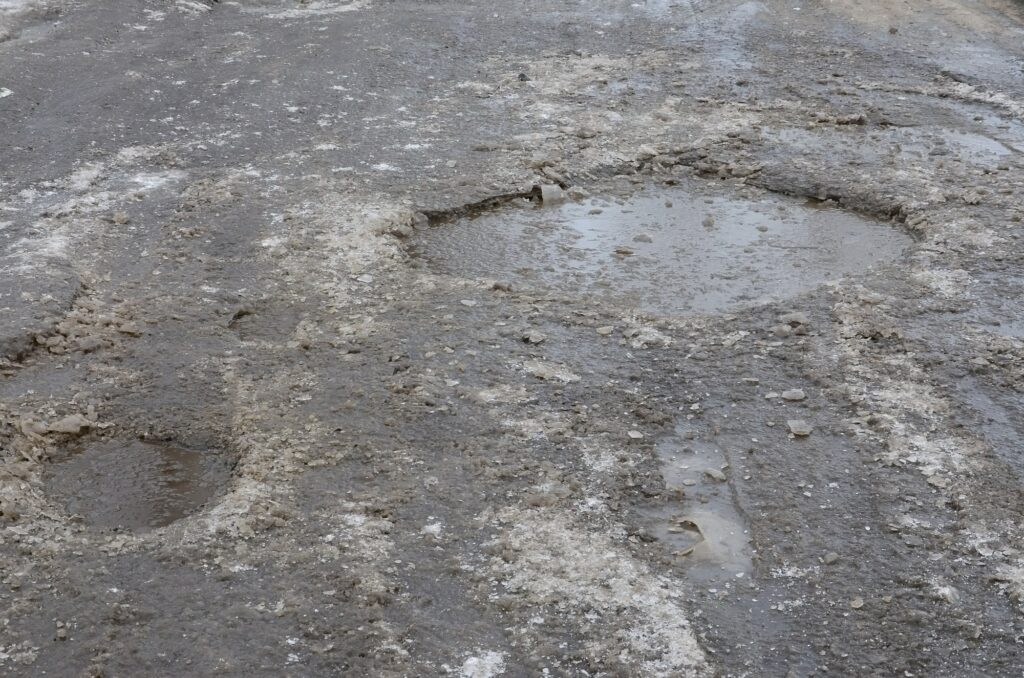Did you know that cold weather can have a damaging effect on your asphalt? That’s right, cold temperatures and the snow and ice they bring with them can accelerate the oxidation process of asphalt. This article will discuss in detail the effects of cold weather on asphalt, as well as ways to prevent any damage from occurring.
Effects of Cold Weather on Asphalt
When it comes to examining the effects of cold weather on asphalt there are two separate categories that you should be aware of. The first category is external factors and the second is types of damage.
External Factors
The cold weather that accompanies winter is often unpredictable, and it can also take a large toll on asphalt surfaces. Your asphalt can begin to crack from the rise and fall of temperatures along with a few other external factors can effect the state of these surfaces.

Low Temperatures
As previously stated cold temperatures can greatly affect asphalt. The cold weather speeds up the oxidation process of these surfaces, causing irreparable damage if left untreated for an extended period of time.
One other thing to know about cold weather and asphalt is that this type of pavement often has a low tolerance for freezing conditions; especially when there are large fluctuations in temperature.
Snow and Ice
If cold temperatures are not enough to damage asphalt, then the snow, ice, slush or sleet that comes along with it can do quite a bit of damage as well. People often think cold weather causes cracks in their asphalt surfaces when really these problems were caused by melted road salt or rock salt which then led to the cold weather exacerbating these issues.
Wet Conditions
Hail snow and freezing rain all come with cold weather, and all of these things can have a negative effect on asphalt. The cold temperatures freeze any standing water that is present, which then leads to the surface being slippery for drivers. This also makes it difficult or even impossible for individuals to drive out their homes if they are stuck in cold weather conditions with an icy driveway.
Location
Because Virginia experiences a wide range of temperatures throughout the year, the asphalt that is typically used is hot-mix asphalt. This is because this type of pavement was specifically designed to better withstand the freezing and thawing process. However, the cold weather can still impact your asphalt surfaces even when you use hot-mix asphalt.
Preemptive Treatments
One thing that determines the effect of cold weather on asphalt is the amount of preemptive care or treatments you have had completely. This is because the best way to prevent negative effects of cold weather on asphalt is by sealing your driveway every few years. Doing this will give the surface layer of your asphalt pavement a protective shield from the outdoor elements. Sealant will help limit the amount of water that seeps into the asphalt. It is also very important that you are diligent about repairing cracks and holes as soon as they appear.
Having a driveway that is sealed not only helps prevent the negative effects of cold weather on asphalt but helps to increase curb appeal too. Learn more about sealcoating and it’s benefits here!
Paving at Low Temperatures
It is important to note that cold weather can also impact the paving process. This means you need to make sure your asphalt surface is dry before any activity takes place on it. You should wait at least twenty-four hours after rainfall or snow has stopped falling before doing anything with the pavement so it can completely dry out.
Another thing worth mentioning is cold weather can impact the asphalt paver as well. This means you need to make sure your machine is properly heated before attempting to pave anything in cold conditions.
Types of Damage
Another thing worth mentioning is cold weather can impact the asphalt paver as well. This means you need to make sure your machine is properly heated before attempting to pave anything in cold conditions.
Upheaval
One of the negative effects of cold weather on asphalt is a sort of swelling in the pavement known as upheaval. If this is occurring it not only makes for uncomfortable driving conditions and a bumpy surface, but it can also extend cracks all throughout your pavement. This swelling is also a sure sign of frost heaves. Frost heaves occur when water gets into the asphalt and expands when it freezes, causing cracks and bumps.
Lightened Color
Another thing you can look for to spot the negative effect of cold weather on asphalt is when the color of your pavement begins to go from black to light grey. This lighting process typically takes place over time as the sun naturally dries out moisture from the asphalt. However, it can occur if the asphalt was laid incorrectly.
Rutting
This occurs when cold weather causes the moisture in your asphalt surface to freeze and then thaw repeatedly. This makes for a bumpy ride and can also lead to premature cracking of your pavement so it is important that you take immediate action if this type of damage begins to occur on your driveway or street. However the worst part of this effect of cold weather on asphalt, is that if left untreated these ruts will lead to large potholes.
Alligator Cracking
This effect of cold weather on asphalt is damage that you can spot very easily. Alligator cracking, as the name suggests looks almost like alligators skin. This means it appears in patches and is very shallow with sharp edges from where it begins to expand from.
Edge Cracks
The last negative effect of cold weather on asphalt that we want to mention is edge cracking. If you start to notice cracks along the edge of your driveway then there is probably a good chance that you have frost heaves. You will want to make sure to first patch up the cracks and establish a better draining solution in order to prevent future cracks from occurring.

Let us Help Handle the Effects of Cold Weather on Asphalt
In conclusion cold weather does have some negative effects on asphalt. However, it is possible to prevent the cold weather from impacting your driveway and another asphalt surfaces using a sealant and repairing cracks as they appear. Our team at Sealcoating 2.0 is here for any and all of your asphalt needs year round! Contact us today for more information about how we can help you this winter season!
